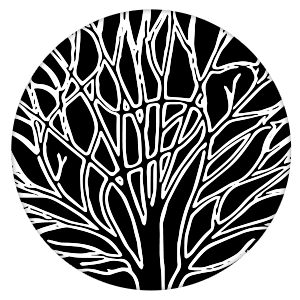Animal Cultures: Core Discoveries and New Horizons
Lecture 11: Implications for ecology and evolution
Lucy Aplin, Max Planck Institute for Animal Behaviour, Germany
In this lecture, I zoom out to place animal culture in a behavioural ecology framework, and discuss the implications of animal culture for ecology and the evolution of species. First, I ask whether animal culture is locally adaptive; or alternatively, does it buffer against the operation of natural selection?
Second, I examine how the environment affects the expression of culture – does necessity or opportunity drive innovation? Third, I discuss animal culture in changing environments, focusing on the diffusion of innovations and the potential for cultural ‘traps’. Finally, I turn my attention to evolutionary dynamics, exploring the potential for culture to co-evolve with genes and promote the emergence of new species.
Lucy Alpin
Lecture slides (pdf)
Core (testable) readings
Beans, C. (2017). News Feature: Can animal culture drive evolution?. Proceedings of the National Academy of Sciences, 114(30), 7734-7737.
A popular science article arguing that advances in animal culture research may have major implications for evolutionary ecology.
Aplin, L. (2016). Understanding the multiple factors governing social learning and the diffusion of innovations. Current opinion in behavioral sciences, 12, 59-65.
A concise summary of the ecological contexts and trade-offs determining the use of social learning, and a discussion of the factors underlying the spread and emergence of new cultures.
Whiten, A. (2017). Culture extends the scope of evolutionary biology in the great apes. Proceedings of the National Academy of Sciences, 114(30), 7790-7797.
A discussion of the pervasive importance of culture to the ecology and evolution of primates, and an introduction to the research methods and approaches that are beginning to reveal the scope of this role.
Further reading
Koops, K., Visalberghi, E., & van Schaik, C. P. (2014). The ecology of primate material culture. Biology Letters, 10(11), 20140508.
A review of the evidence for the role of ecology in shaping material culture in three primate species, and a discussion of the role of necessity vs opportunity in driving the expression and patterning of cultural traits.
Slabbekoorn, H., & Smith, T. B. (2002). Bird song, ecology and speciation. Philosophical Transactions of the Royal Society of London. Series B: Biological Sciences, 357(1420), 493-503.
A classic review of the role of bird song and vocal learning on reproductive divergence and speciation in passerine birds. The start of an integrative approach considering the role of song culture in tandem with ecology over the process of speciation.
Whitehead, H. (2017). Gene–culture coevolution in whales and dolphins. Proceedings of the National Academy of Sciences, 114(30), 7814-7821.
An ambitious and persuasive argument for the role of culture in shaping genetic diversity in whales.
This project was supported by Grant #61105 from the John Templeton Foundation to the University of Tennessee, Knoxville (PIs: S. Gavrilets and P. J. Richerson) with assistance from the Center for the Dynamics of Social Complexity and the National Institute for Mathematical and Biological Synthesis at the University of Tennessee, Knoxville.

The Cultural Evolution Society's Online Learning Tutorial Series is licensed under a Creative Commons Attribution-NonCommercial-ShareAlike 4.0 International License. For designers' contact information, click here.



